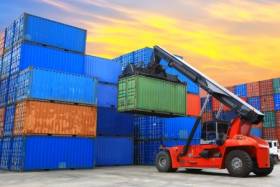Displaying items by tag: Shipping Volumes
Irish Shipping Volumes Rise By 1% In Q2 2017
#Shipping - Shipping and port activity in the Republic of Ireland rose by 1% in the second quarter of 2017 when compared to the corresponding period of 2016, according to the latest iShip Index published by the Irish Maritime Development Office (IMDO).
Unitised traffic — which consists of roll-on/roll-off (RORO) and lift-on/lift-off (LOLO) traffic — continued to rise, growing by 3% when compared to Q2 2016.
The majority of RORO traffic moves between Ireland and Great Britain, meaning this freight segment is a simple but reliable indicator as to the level of trade between both economies.
The RORO freight sector for the Republic of Ireland saw volume growth of 3% in the second quarter of 2017. This is the fifth consecutive Q2 increase in this freight category.
As for LOLO (containership) traffic, exports in the Republic of Ireland (ROI) rose by 7.4% compared to Q2 2016, while imports remained relatively unchanged — rising by 0.9%. Overall, LOLO traffic in ROI increased by 3.7% to 184,673 TEU.
When reviewing unitised traffic, it is worth noting that both LOLO and RORO freight segments move in an all-island setting. Therefore, when Northern Irish ports are included, all-island RORO volumes grew by 2% in Q2 2017.
All-island LOLO traffic grew by 3.5%, with all-island imports and exports rising by 1.1% and 6.6% respectively compared to Q2 2016.
NI RORO volumes grew by 2%, while NI LOLO traffic grew by 2.8%. This was driven primarily by 4% growth in NI LOLO exports.
The bulk traffic segment saw tonnage volumes decrease by 1% (excluding transhipments) in the Republic of Ireland when compared to the same period last year. This was driven primarily by a 3% fall in Dry Bulk tonnage.
Break bulk volumes grew by 3%, while liquid Bulk traffic remained stable compared to Q2 2016.
Summary of Shipping Volumes for Republic of Ireland:

























































